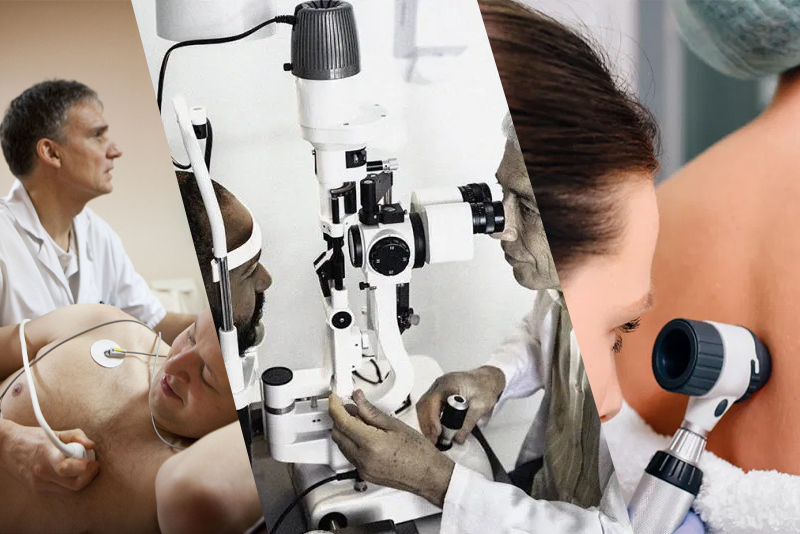
top 10 highest paying jobs in texas
Last updated on September 20th, 2022 at 10:02 am
 US – The top 10 highest-paying positions in Texas, according to the U.S. Bureau of Labor Statistics, are all in the medical industry, with yearly incomes ranging from $274,000 to $361,000.
US – The top 10 highest-paying positions in Texas, according to the U.S. Bureau of Labor Statistics, are all in the medical industry, with yearly incomes ranging from $274,000 to $361,000.
The most recent information, from May 2021, was derived from occupational employment and wage estimates provided by employers across all industry sectors in the state’s urban and nonmetropolitan areas.
You’re at least halfway to earning a doctorate and working as one of the physicians listed below if you already hold a bachelor’s degree.
| Rank | Job Title | Annual Salary |
| 1 | Cardiologists | $361,900 |
| 2 | Ophthalmologists | $337,120 |
| 3 | Dermatologists | $321,600 |
| 4 | Orthopedic surgeons | $314,970 |
| 5 | Obstetricians and gynecologists | $292,560 |
| 6 | Neurologists | $291,730 |
| 7 | General internal medicine physicians | $286,890 |
| 8 | Radiologists | $284,870 |
| 9 | Surgeons | $279,600 |
| 10 | Physicians/pathologists | $274,800 |
1) Cardiologists
Cardiologists are medical professionals with a focus on the heart who collaborate closely with other members of the cardiovascular system. Some have chosen to specialize in particular branches of cardiology, such as nuclear cardiology, echocardiography, electrophysiology, and interventional cardiology.
Diagnose and treat heart attacks, abnormal heartbeats, coronary heart disease, or clogged arteries are examples of general duties.
2) Ophthalmologists
Ophthalmologists and optometrists both carry out comparable tasks, however optometrists lack the medical license necessary to practice medicine and are not permitted to carry out surgical treatments. These doctors are qualified to remove cataracts and do other corrective eye surgery.
This line of work has subspecialties for treating glaucoma, corneal and exterior eye disorders, and ocular plastic surgery.
3) Dermatologists
Dermatologists are medical professionals who focus on treating diseases of the skin, hair, and nails. While some patients visit these doctors for aesthetic reasons, others receive treatment for illnesses like skin cancer.
4) Orthopedic surgeons
Orthopedic surgeons are experts at identifying and treating patients with musculoskeletal conditions and accidents. To assist patients manage and recover from diseases, they employ rehabilitation and other medical treatments.
Bone fractures, ruptured disks, arthritis, osteoporosis, bone cancer, club foot, and muscular dystrophy are a few conditions these doctors treat.
Keep Reading
5) Obstetricians/gynecologists
OB-GYNs, also referred to as obstetricians and gynecologists, are health care providers who focus on pregnancy, childbirth, and the female reproductive system. In clinics, hospitals, and other healthcare facilities, physicians practice.
6) Neurologists
Doctors that specialize in the diagnosis, treatment, and management of brain and nervous system illnesses are known as neurologists. These doctors treat conditions like Parkinson’s disease, multiple sclerosis, concussions, epilepsy, and Alzheimer’s disease.
As opposed to neurosurgeons, neurologists do not operate on the brain or spinal cord.
7) General internal medicine physicians
In contrast to family practitioners who treat both adults and children, general internal medicine physicians, also known as internists, diagnose and treat ailments in adult patients. They address a variety of problems and offer nonsurgical treatment for diseases and injuries affecting the internal organ systems in adults.
Internists examine patients and provide advice on everything from basic health concerns to more complicated problems that may need the help of other types of specialists.
8) Radiologists
Radiologists are medical professionals who other doctors, like surgeons, rely on to take images to comprehend better what’s going on inside a patient’s body. In order to examine and treat a variety of illnesses and injuries, they use medical imaging technologies.
Radiologists can find employment in various places, such as hospitals, private practices, radiation therapy clinics, and diagnostic imaging centres.
9) Surgeons
Surgeons perform procedures with a range of tools to cure wounds, illnesses, and abnormalities. They can perform elective or preventive procedures on patients, treat bone and tissue injuries, and rectify physical deformities.
Like other doctors, surgeons conduct and interpret diagnostic tests, evaluate patients, and offer them advice on preventive healthcare.
10) Physicians/Pathologists
Pathologists are the specialists that other doctors consult, and they are sometimes referred to as “the doctor’s doctor.” They analyze fluid and tissue samples and utilize the results of the tests to determine which diseases may be affecting an individual or group of individuals.
Pathologists’ major focus is research, and the information they uncover may help doctors make better medical diagnoses or choose more suitable treatments.









